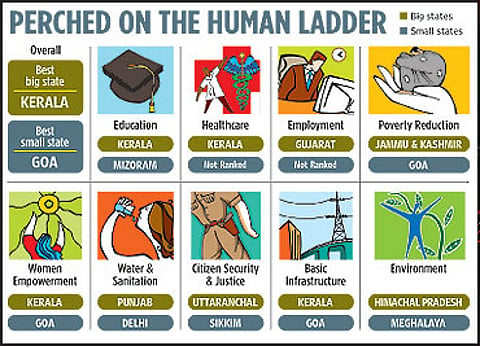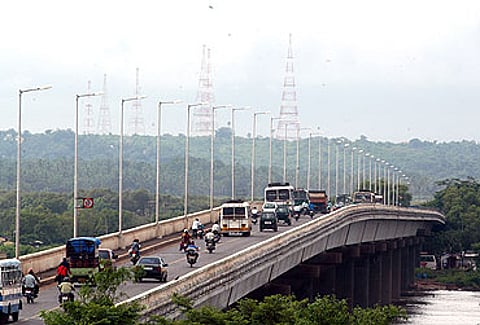The Standard Bearers
At the Diamond States Awards, basic tenets prevail. Small is beautiful, inclusive growth will take you to the top.

This brings us to another, crucial question: how closely linked is economic growth and the human development index? There is a link, going by research resource PricewaterhouseCoopers's (PwC) analysis of government and other public domain data available to judge the progress of states on healthcare, education, environment, water and sanitation, employment opportunities, women empowerment, poverty reduction, citizens' security and basic infrastructure.
But there are many who contend that it is socio-economic development that helps states attract investments and not the other way around. Political scientist Mahesh Rangaranjan is a believer. "Social reforms such as access to education and literacy are responsible for change in the fortunes of states," he says. Take Kerala, for instance, which benefited due to the major transformation in women's status in the early 20th century. Similarly, Goa's uniform civil code and land holding system inherited from the Portuguese contributed to its development pattern. Atul Sood, of the jnu Centre for the Study of Regional Development, says, "If one is looking at inclusive growth, then in the initial stage of development, human development would be a very significant factor. The role of female literacy is a very well-established factor in the outcome."
Once the state reaches a comfortable level of human development, then investments become an important factor. Evidence proves that nature and type of investments make a huge difference to the outcome. Himachal Pradesh—which ranks second in the women empowerment, education and basic infrastructure categories among large states—is an apt example. Similarly, Sikkim is making rapid headway in areas like water and sanitation besides citizens' security and justice, and ranks second-best overall among the small states.

The DSA rankings also put the spotlight on small states like Mizoram, Meghalaya and Sikkim, demonstrating how greater investments and focus on key issues can help improve outcomes. Arvind Kumar, resident commissioner of Sikkim, attributed his state's achievement in education to "political stability, law and order and people's participation to ensure the continuing rule of a single party and CM for the last 15 years. With no political bargaining, the government has been able to focus on development activities on all fronts." There are other reasons why small is considered beautiful. Reiterates Goa CM Digambar Kamat, "Smaller states are administratively easier to handle—hence their ability to focus on development works more easily."
Unfortunately, gaps in data (especially for small states) resulted in no small state being ranked for two key categories: healthcare and employment. Unlike the database for investments and gdp growth, which are grounded in hard numbers, the statistics are inadequate on soft aspects of growth like women's empowerment, literacy, healthcare and employment. So this time around the rankings are indicative only of the current development in a state.
"Between the quantitative data available and the kind of actual information required, there is a mismatch," admits former IIM-A director Dr Bakul H. Dholakia, a member of the jury headed by ex-rbi governor and Rajya Sabha MP Bimal Jalan. The other jurists include author and consultant Gurcharan Das, National Institute of Public Finance and Policy Senior Fellow Ila Patnaik, Centre for Policy Research president and chief executive Pratap Bhanu Mehta and ficci secretary general Dr Amit Mitra.
Contrary to popular belief, Bhibhu Mahapatra of thinktank India Development Foundation feels development is an "election issue" now for people across the country. "For a Dalit in UP, caste is an issue, as it is for the Yadav caste in Bihar. That does not mean people do not care about their needs—such as clean drinking water or electricity," he says. Indeed, growing exposure to better lifestyles, thanks in part to the media, is slowly bringing about an aspirational change even among the most downtrodden.
Unfortunately, this realisation does not often translate into action in a country where votebank politics and periodic elections are disruptions. Many states ranked in the Diamond State Awards are on the right path. But clearly, a lot more remains to be done.
Tags